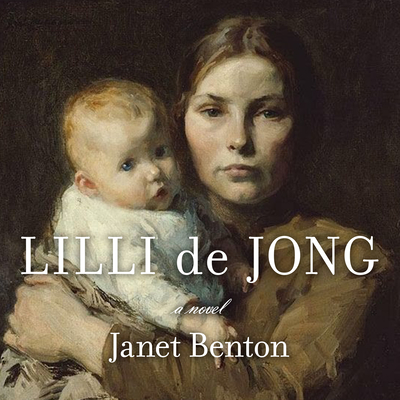Lilli de Jong by Janet Benton
Pregnant, abandoned by her lover, and banished from her Quaker home and teaching position, Lilli de Jong enters a charity for wronged women to deliver her child. She is stunned at how much her infant needs her and at how quickly their bond overpowers her heart. Mothers in her position have no sensible alternative to giving up their children, but Lilli can t bear such an outcome. Determined to chart a path toward an independent life, Lilli braves moral condemnation and financial ruin in a quest to keep herself and her baby alive.
Confiding their story to her diary as it unfolds, Lilli takes readers from an impoverished charity to a wealthy family's home to the perilous streets of a burgeoning American city. Lilli de Jong is at once a historical saga, an intimate romance, and a lasting testament to the work of mothers. "So little is permissible for a woman," writes Lilli, yet on her back every human climbs to adulthood."
Review: Written as a diary of Lilli de Jong, this novel is set in 1883 Philadelphia. When Lilli finds herself pregnant and abandoned by her fiancé, she finds herself kicked out of her Quaker family's home and without the teaching position that formerly supported her. She finds refuge in a charity for unwed mothers but is told she must give up her baby if she wishes to avoid a life of poverty and shame. But Lilli is determined to keep her child. Overwhelmed by love for her child and the impossible nature of her situation, with no support or assistance offered her. Instead, at every turn her circumstances continue to grow more dire as she moves from the charity to a wealthy family's employ to the dangerous streets of Philadelphia.
This novel is simultaneously a condemnation of the way mothers, particularly working and single mothers, have been treated throughout American history and a glowing tribute to the power and unwavering loyalty of a mother's love for her child. Despite every reason to abandon her child and every inducement to do so, Lilli refuses to do so, regardless of the personal consequences. The lack of resources for a woman who finds herself without a male protector is wholly illustrated in this novel. Perhaps even more tragic is the plight of babies left without a protector. Lilli is very aware that if she gives her baby up, it will more than likely die in the alms house from disease, starvation, or neglect. Despite her willingness to work, Lilli is deemed a fallen woman and the presence of her child with her is considered disgraceful and shameful.
Beyond the circumstances of her plight, much of Lilli's diary entries are devoted to intimate physical details of the care of her infant. Benton has done an absolutely remarkable job of describing the joy, pain, and physical demands of nursing an infant. Only an author with intimate experience with breastfeeding could have so effectively written these scenes from Lilli's perspective. The tingling rush of milk, the pain of mastitis, and the constnat threat of leaking into one's clothes is a constant reminder of Lilli's connection to her child and also the source of her greatly altered life circumstances.
A tragic book that gets progressively and progressively bleaker until Lilli's luck finally begins to change. Benton sheds light on a dark element of our nation's history that failed many children and women in need. Although Lilli's baby had a champion in her mother, I couldn't help but think about all the other babies Lilli says that she cannot help, who were abandoned to their fate of an early death by mothers who had no alternative. A well written book with a strong female lead and a compelling historical setting and plotline.
Stars: 4



Comments
Post a Comment